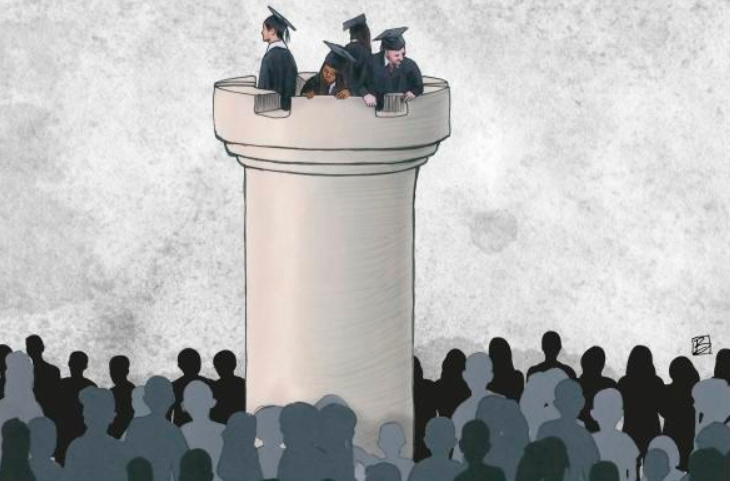
Although anyone can and will criticize higher education, millennials are evidently smart enough to know its value. In spite of the horror stories about student loan debt, academic disasters, and wrong career turns, millennials have boasted one of the highest graduation rates of any generation to date. Generation Z may soon surpass them too as Laura A. Scione, managing editor of eCampus News reports:
“Despite growing questions around the value of college and return on investment in tuition, just 25 percent of Generation Z students say they believe they can have a rewarding career without going to college, compared to 40 percent of millennials.
Eighty percent of Generation Z respondents and 74 percent of millennials agree that college either has a fair amount of value, is a good value, or is an excellent value. Only 20 percent of Generation Z students and 26 percent of millennials said college has ‘little value’ or ‘no value at all.’”
Good for them! The statistics remain on their side—and the side of anyone who pursues higher education. Anthony P. Carnevale is the director of the Georgetown University Center on Education and the Workforce. Based on his research, that trend will only continue (Gillian B. White “Those Savvy Millennials” The Atlantic, May 2015, p. 38):
“In 1973, 32% of jobs did not even require a high school diploma, 9% required a bachelor’s degree, and 7% required a master’s degree or higher.
It is projected that by 2020, 12% of jobs will not require a high school diploma, 24% will require a bachelor’s degree, and 11% will require a master’s degree or higher.“
Derek Newton wrote an article entitled “Please Stop Asking Whether College Is Worth It” in which his opening declaration gets right to the point:
“Colleges and universities are still the best, most direct path to a good career that pays well.”
In addition to those insights, the unemployment figures consistently reveal the enduring value of higher education. The seasonally adjusted July 2019 unemployment rate for persons not having a high school diploma is 5.1% (Bureau of Labor Statistics). Having a high school diploma drops that rate to 3.6% and some college or a two-year degree drops it further to 3.2%. Pretty good trending, would you agree? Finally, if we look at people having a four-year degree, a graduate degree, or a doctoral degree, the unemployment rate is a low 2.2%.
Higher education’s edge is especially clear when you consider the range of these numbers over the education level. Look at the two ends of the spectrum: less-than-high school (5.1%) versus a four-year degree or higher (2.2%). Consistently, regardless of the measured time, the unemployment rate for a less-than-high-school-educated worker is two to four times larger than for the college-degreed worker. This is why, when people seek my counsel about career planning, higher education remains one of my most significant emphases. Education pays. Degrees still rock.
Regardless of how good or bad the economy is, regardless of how many individual academic and career disasters can be cited, and regardless of how loudly the antidegree crowd howls, you are still in a better position having a degree than not having a degree. The good news for the millennials and Generation Z is that they have arrived at the same conclusion and now they will enjoy the benefits.

